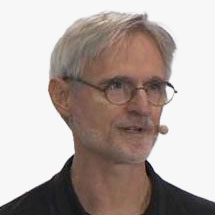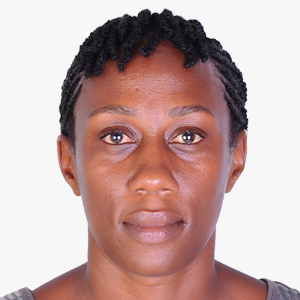Data Science Theme: Elevating industries through transformative insights
16 May 2024 | 0930 - 1130 hrs


Professor & CEO
Constructor University
Germany
Peter Baumann, a distinguished figure in the field of Computer Science, is a Professor at Jacobs University Bremen and the visionary CEO & founder of rasdaman GmbH, based in Bremen. Renowned for pioneering Array Databases, his contributions span data models, query languages, storage optimization, and applications in diverse fields such as earth, space, and life sciences. Actively involved in standardization efforts for spatio-temporal geo services (OGC, INSPIRE, ISO) and Array SQL (ISO), Dr. Baumann's career balances scientific innovation with practical industrial applications. As the principal architect of the APRIL object-oriented database system during his PhD at Technical University Darmstadt, he laid the foundation for his groundbreaking work in large, multi-dimensional raster datasets and the development of rasdaman, the world's first operational Array Database System. Dr. Baumann's achievements extend to patenting his concepts globally and leading influential working groups in OGC, showcasing his commitment to advancing the field.

Strategy & Sales
Pointly
Germany
Sid Hinrichs is an experienced professional managing business development efforts and customer success at Pointly, a pioneering firm in the field of 3D point cloud analysis. With a robust consulting background, Sid has managed a wide array of projects, particularly those integrating data science and business intelligence solutions across various sectors.
At Pointly, Sid has been instrumental in driving the adoption of the Pointly cloud platform, which is innovatively designed to enable automated object detection in point clouds and support the entire lifecycle of AI models. Their work primarily focuses on the application of AI in enhancing 3D point cloud analysis, which has set new standards in precision and efficiency within the industry

Researcher, Division of Geomatics, School of Architecture, Planning and Geomatics
University of Cape Town
South Africa
Dianah Abeho is a researcher and academic scholar at Makerere University Kampala in Uganda. She is also a managing partner at Scape and Surveys Associates (SSA), one of the leading land surveying firms in Uganda with all competencies in Geomatics and Land Management. Dianah holds a BSc (Geomatics and Land Surveying), MSc (Geodesy) and she is currently a PhD student at the University of Cape Town. Her research focuses on the use of Unmanned Aerial Vehicle (UAV) imagery and Machine Learning (ML) for cadastral surveying, with a focus on community-based approaches. She is a certified drone pilot and licenced surveyor in Uganda registered with the Surveyors Registration Board (SRB) and a professional member of the Institution of Surveyors of Uganda (ISU). Dianah is engaged in multidisciplinary research including the application of modern space-based positioning techniques for Geomatics and the built environment, fit for purpose technologies in capturing and managing land records for land registration and the application of advanced digital photogrammetry and ML for property boundary documentation.
Geospatial World Forum 2024 shall host a 90 Minute technology program on Data Science where the discussions will be around how data science has become an essential part of many industries today, that is helping them make strategic decisions and optimize outcomes. Retail, BFSI, Construction, Energy & Utilities, Défense, all these sectors are planning to increase their spend over in the coming years to take more benefit of data analytics capabilities.
In retail, it has elevated customer experience through personalized recommendations and optimized supply chain operations. The BFSI sector benefits from data science by enhancing risk assessment, detecting fraud, and tailoring financial services to individual preferences. Construction projects are streamlined with data analytics, optimizing project management, resource allocation, and implementing predictive maintenance practices. The energy and utilities industry has seen operational efficiency improvements and effective grid management through real-time data analytics. Meanwhile, the Défense sector relies on data science for intelligence analysis, strategic planning, and cybersecurity, ensuring the secure and informed execution of military operations. The common thread across these industries lies in the power of data science to unlock insights, drive innovation, and facilitate data-driven decision-making, ultimately leading to increased efficiency, cost savings, and improved outcomes.

Missed the Abstract Submission Deadline? No Worries! It's not too late to be a part of this transformative event. Reach out to us at papers@geospatialworldforum.org.